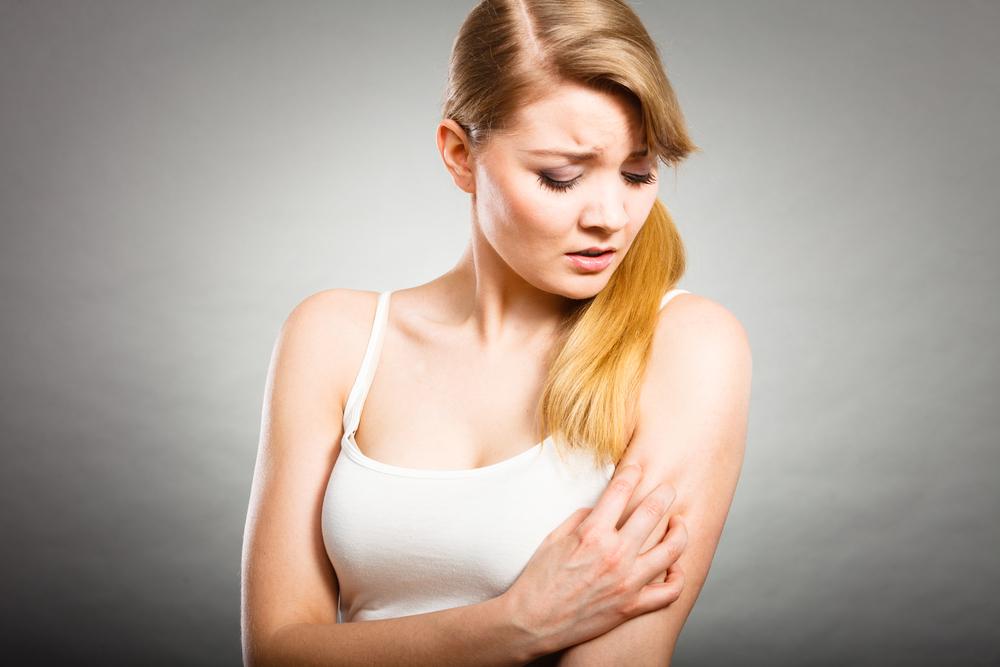Everything You Need To Know About Itchy Skin
Everything you need to know about itchy skin
Itchy skin is an irritating sensation, which makes one feel like scratching. The itching can sometimes spread from a small patch of skin to all over the body, developing rash or hives. Often caused by dry skin, itchy skin is also called pruritus. Pruritus is common among older adults as skin tends to become drier with age.
Below is more information about the causes, symptoms, and treatment options for itchy skin.

What causes itchy skin?
Although the dry skin is a major cause of itchy, other factors causing itchy skin include rashes and skin conditions, certain diseases, irritation, allergic reaction, pregnancy, drugs, and nerve disorders. Below is some more information about the causes of itchy skin:
- Dryness – The most common cause of an itchy skin is dryness. In the absence of a crop of bright red bumps or visible and dramatic changes in the skin area that itches, dry skin is the most likely cause. Skin tends to get drier with age; however, factors like long-term use of air conditioning and heaters, long hours of bathing, etc. also cause the skin to become dry.
- Atopic dermatitis (eczema) – Itchy skin caused by atopic dermatitis is dry, red, and irritated. Dry sheets, hot showers, and scratchy fabrics seem to aggravate the condition. Additionally, excessive scratching can result in small, fluid-filled bumps all over the itchy skin surface.
- Allergic contact dermatitis (contact eczema) – As the name suggests, this itchy skin condition is a result of contact with an irritant or an allergen.
- Psoriasis – Itchy skin caused by this autoimmune disease is not only itchy but also painful.
- Kidney disease – Chronic kidney disease can cause itchy skin. When the kidneys fail to clear toxins from the body, the buildup of metabolites takes place over the skin. This type of itchy skin affects large areas and the itch worsens at night.
- Liver disease – Just like the kidneys, the liver also plays an integral role in clearing toxins from the body. Therefore, a malfunctioning liver can also sometimes causes itchy skin (especially on the palms and soles).
- Diabetes – As people suffering from diabetes tend to have dry skin, they are more prone to an itchy skin condition.
- Hypothyroidism – Those suffering from hypothyroidism develop dry itchy skin due to diminished cellular activity.
What are the symptoms of an itchy skin?
- Itchy skin can cover a small area or can develop all over the body. It can occur with noticeable skin changes or as itchy skin with no rash.
- The itchy skin condition can sometimes cause redness, bumps, blisters, red spots, scaly skin texture, dryness, and cracked skin. However, this depends on the cause of the itchy skin.
- Itchy skin sometimes lasts for a long time and continues getting itchier with every scratch. Continued scratching damages skin which in turn itches more. The itching-scratching cycle becomes hard to break.
What are some easy yet effective ways to soothe itchy skin?
- Cold compress – Apply an ice pack or a cold wet cloth over the itchy skin area for temporary relief.
- Oatmeal bath – This remedy is great especially for an itchy skin condition accompanied by redness and blisters.
- Menthol/calamine application – An application of menthol or calamine lotion can help relieve the symptoms of itchy skin.
- Moisturize – Moisturizing regularly, especially after bathing, helps in ensuring the skin doesn’t dry up. However, it is important to use moisturizers free of additives and fragrances, especially, if you have an itchy skin.
How can itchy skin be treated?
If the itchy skin isn’t relieved with the easy and effective techniques, it is important to show it to a doctor. The doctor may treat the conditions using the following techniques:
- Anti-itch creams – These creams have both moisturizing and anti-itch properties. As the itching-scratching cycle keeps the skin irritated, an anti-itch cream can help break it.
- Antihistamines – If the itchy skin is caused because of an allergic reaction, antihistamines are prescribed by doctors.
- Phototherapy – This is an ultraviolet light treatment used for treating a severe itch-scratch cycle.
- Topical steroid creams or ointments – These creams help subside the inflammation, redness, and/or bumps caused by scratching.

